Conflict in Your Relationship
You might have noticed recently that conflict seems to be everywhere. You can’t make it through a day, let alone a meal without conflict. This could include arguments or ruptures with your partner, your child, or maybe even your own inner conflict. What often feels so exhaustive is that you’re either walking on eggshells and things are mostly peaceful, or you’re not and things are not peaceful. I’d love to share a bit about what may be driving the conflict in your relationship.
Conflict can come from the smallest places.
While you might hate arguing, it might how you were raised. (You might joke that it was your parents’ communication style!) If your childhood was traumatic, or you had adverse experiences some of those may include major conflict. And, while you try to avoid it, it’s always where you end up.
Legacy arguments are repeated ruptures (fights) that come from inherited family patterns and values. These can often be at the heart of fights or even simple miscommunication. When you find yourself emotionally, behaviourally or verbally responding in ways that seem very familiar (and unproductive!), it may be helpful to get curious about the “why” behind these reations.
 While it might feel like you are at risk of losing love, or your partner’s commitment, these arguments are very rarely about those. These patterns or ways of arguing were likely ways you responded to stay safe (or keep the peace) in your family of origin. Perhaps you avoided conflict at all cost by making yourself small (agreeing, behaving, caretaking). It could be that you simply left (avoided) the home, when things got loud or scary. Walking on eggshells may have been familiar to you. Those responses helped you back then. Now they may be keeping you from love and connection.
While it might feel like you are at risk of losing love, or your partner’s commitment, these arguments are very rarely about those. These patterns or ways of arguing were likely ways you responded to stay safe (or keep the peace) in your family of origin. Perhaps you avoided conflict at all cost by making yourself small (agreeing, behaving, caretaking). It could be that you simply left (avoided) the home, when things got loud or scary. Walking on eggshells may have been familiar to you. Those responses helped you back then. Now they may be keeping you from love and connection.
Counselling is a safe space to explore what lies under these negative reactions and patterns.
Here are some ways you might recognize legacy arguments within your relationships:
When you notice arguments where you don’t understand what’s at the heart of them, you’re simply repeating unhealthy patterns. These are hurtful, unhelpful and exhausting. Often working with couples, I will ask about a story or a need that lies under the want. For example, when one partner overreacts if the other partner is home from work even a few minutes after the regular time, it could stem from lacking trust. This mistrust is often birthed in childhood. Perhaps a caregiver failed to show up consistently. The want/need is possibly for reliability or to feel important. Maybe there was a betrayal previously. It’s possible the upset partner has a core belief that no one truly cares, or they will always be alone. Hurt and fear could be driving what seems like a disproportionate reaction.
Fear in and of itself can keep you from true connection. Are you afraid (maybe it feels like anxiety) that love will be taken from you? Does it seem impossible to fully trust anyone? …that could definitely create anxiety! Fear, as an emotion, typically communicates a lacking sense of trust or safety (relationally, at times). It often drives you to protect yourself. This sense of protection is important, especially if you’ve had a traumatic experience. However, those protective walls might also isolate you. Feeling alone is unbearable at times. Yet, you might know it well.
You might notice familiar patterns in your child or partner. This could be anything from the tone they use to respond to you, to their mental or emotional health. If you notice your partner exhibiting perfectionist tendencies and you’re responding in an unhelpful way, this could be from family of origin experiences. Perhaps you had a caregiver who expected perfection or else you were the target of their anger. Your partner may be acting very different, but this similar tendency feels to familiar for you. It might be that you expect perfection of yourself! When you make a mistake (because you’re human and perfection is impossible), you might shame spiral or self-deprecate. Your nervous system doesn’t like it – and it reacts in ways that are confusing!
You can explore these experiences in individual or couples counselling.
 I take a trauma-informed approach with my clients. When you and I work together, it is deeply important to me that you feel safe, seen and known. This sense of safety or comfort may take time to trust, and that’s okay. If you’ve had a traumatic experience or grown up in an environment that was not predictable or safe, it makes sense that healing those hurt parts will take time.
I take a trauma-informed approach with my clients. When you and I work together, it is deeply important to me that you feel safe, seen and known. This sense of safety or comfort may take time to trust, and that’s okay. If you’ve had a traumatic experience or grown up in an environment that was not predictable or safe, it makes sense that healing those hurt parts will take time.
I will walk with you as awareness increases and curiosity is cultivated, you can begin to heal.
Dismantling or deconstructing some of these legacy arguments – intergenerational trauma and pain – which are not your fault, takes time. Can I encourage you that you can break these cycles. It may feel slow at times, but so worth it. You will begin to understand and trust yourself more. You’ll feel empowered as you better recognize what’s driving some of your arguments. You will undoubtedly begin to reduce what often feels like a huge barrier to love, belonging and hope.
Conflict in your relationship can feel exhausting and at times, hopeless. If your struggling to feel connected and hopeful in your relationship(s), I invite you to reach out. I offer individual and online (virtual) counselling. In-person sessions are at the Langley, BC office. Online (virtual) counselling is available to anyone in BC. I hope to connect and together, we can undo aloneness and explore healing for you.





